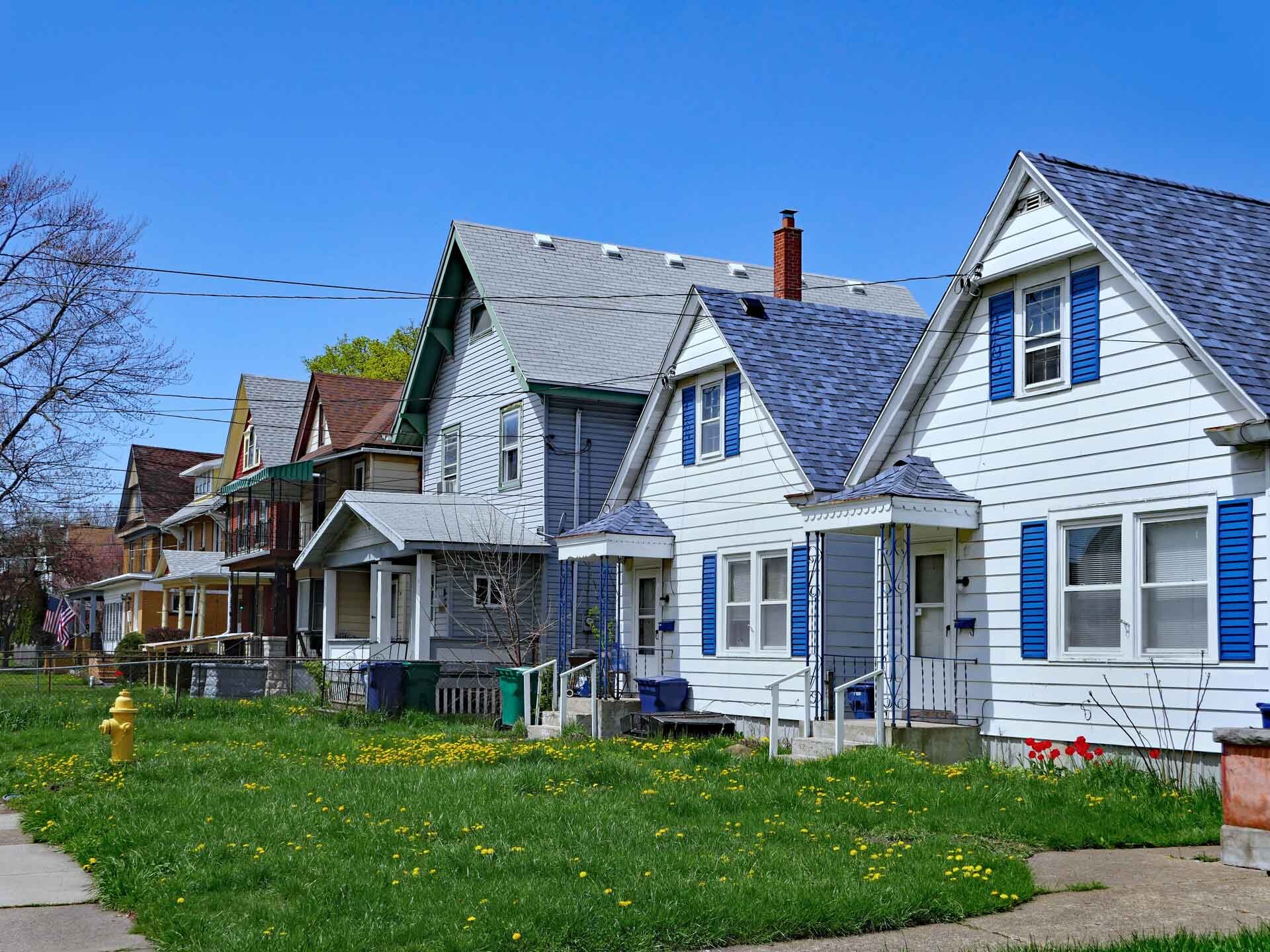Foreclosure occurs when a homeowner is unable to make their mortgage payments on time and has no way to catch up on the missed payments. Because a mortgage is a legal agreement between you and your lender, once you’ve defaulted on the loan, the lender can auction off the property to cover any outstanding debts, leaving you homeless and with terrible credit.
No one wants to receive a notice of foreclosure and yet, in a nationwide study, nearly 1 million Americans were afraid of losing their homes (U.S. Census Bureau Household Pulse Survey, fielded from July 27 to Aug. 8, 2022). Foreclosure can occur from a number of reasons, including:
- Job loss and loss of income
- Divorce or death of a spouse or partner
- Mounting debt, including medical and credit cards
- Moving without being able to sell the home
- Natural disaster
Hudson Valley Cash Buyers is a local company operating in NY that has built their business by buying distressed houses and properties in the area for cash. They promise competitive cash offers without the hassle of dealing with real estate agents, title companies, traditional bank financing, and more!
What is Foreclosure?
Let’s say you or your spouse recently lost your job. The financial strain quickly becomes overwhelming, especially as the bills keep piling up, and your mortgage payment becomes increasingly difficult to cover. The emotional and mental toll can be exhausting as you try to make ends meet while facing an uncertain future. Even if you find another job, the reality is that the amount of debt accrued during your time without employment can be daunting. In many cases, the accrued debt may seem impossible to pay off within a reasonable timeframe, leaving you with little room to breathe.
When you fall behind on mortgage payments for several months, the bank will typically begin the process of foreclosure. Foreclosure is the legal procedure where the lender attempts to recover the balance of a loan by taking ownership of the property. It’s a daunting experience for any homeowner, as it can lead to the loss of your home and can have long-term consequences on your credit score. The process can take several months, and during this time, you might be facing intense financial pressure and the risk of losing your home.
However, there are options available before foreclosure becomes inevitable. You might be able to negotiate with your lender for a loan modification, or even explore government programs aimed at providing relief to homeowners in distress. In some cases, a short sale or deed in lieu of foreclosure could be viable alternatives, helping to mitigate some of the negative impact on your credit and allowing you to move forward.
Understanding your options and seeking help as soon as possible can help you make the best decision for your financial future, rather than waiting until foreclosure is already in motion. It’s important to act early and consider all potential paths to avoid losing your home and protect your financial stability.
How Long Do You Have To Get Out of Your House After Foreclosure?
The steps for foreclosure in most states typically follow a general pattern: missed payments, public notice, foreclosure, auction, and eviction. However, the timeline for each of these steps can vary significantly depending on the state’s specific laws and whether the foreclosure process is judicial or non-judicial. In some states, the entire foreclosure process can take as little as 120 days, while in others, it might stretch to as long as nine months. A judicial foreclosure involves the lender filing a lawsuit in court to obtain approval for the foreclosure, which can take longer due to court schedules and legal procedures. On the other hand, a non-judicial foreclosure is faster because it doesn’t require court involvement, but the lender still must follow state-specific rules to provide proper notice to the homeowner.
During this period, your lender will likely contact you in various ways, such as by phone, mail, and email, to inform you of the situation and keep you updated on the next steps. This communication is crucial, as the lender may offer you opportunities to work out an agreement, such as a loan modification, repayment plan, or other solutions to avoid foreclosure. They may also inform you of any potential foreclosure alternatives, like a short sale or deed in lieu of foreclosure, which could prevent further damage to your credit score and allow you to move on from the situation more smoothly. While these communications can feel overwhelming, it’s important to respond and explore all available options to prevent the foreclosure process from moving forward.
The Different Types of Foreclosure
There are two different types of foreclosure you may experience: nonjudicial foreclosure or judicial foreclosure.
What Is Non-Judicial Foreclosure?
A non-judicial foreclosure is the fastest and cheapest way for a lender to foreclose on your NY property. It does not require taking you, the homeowner, to court and can be completed according to state statutes. In the case of non-judicial foreclosure, your lender repossesses your home to sell it and recover whatever debt is owed using what’s called a “power-of-sale” clause in the deed of trust. Not every state allows for this option but, if yours does, the lender will generally choose it to avoid any court costs.
What Is Judicial Foreclosure?
In states that require judicial foreclosure, your lender must file a lawsuit asking the court to issue an order to allow for the sale of the home. The lender must provide you with this letter. Whether you agree or not, you must respond to the letter or the lender will automatically win the case and be allowed to put your home up for a foreclosure sale. When the house is sold, you are still required to pay the difference between what you still owe on the mortgage and the amount the house sold for.
Auctions are not like regular home sales and generally the house is not sold for market value. This means that even if your house is in great shape and worth a lot more than what is left on your mortgage, you may still find yourself owing tens of thousands (if not hundreds of thousands) of dollars for a house you no longer own! This is called a deficiency judgment. It’s an expensive and long process for lenders to take to try and recoup their debt, which is why most prefer a non-judicial foreclosure.
Get an offer today, sell in a matter of days.
How to Sell Your House Before Foreclosure in NY
Let’s break down a few ways you can sell your house, depending on your time frame and situation:

Hire A Real Estate Agent
The first step most Americans think of when selling a house or property is to reach out to a local real estate agent. However, this may not be the best route for homeowners facing difficult situations such as foreclosure. While a skilled agent can help list your property on the MLS, stage the home, and organize showings, there are significant costs involved, particularly the agent’s commission, which typically ranges from 3% to 6% of the final sale price. For homeowners already dealing with substantial debt, this commission can represent a considerable financial burden, especially when every penny from the sale is needed to pay off outstanding loans. Additionally, the traditional selling process can be time-consuming, often requiring multiple months to close, and the lengthy waiting period can increase the risk of foreclosure. In such situations, alternative options like selling directly to a professional buyer may provide a faster, more cost-effective solution, allowing you to avoid the commission and the uncertainty of the conventional real estate market.
Plus, there’s the additional fear of not knowing when your house will actually close. Realtors may promise a lot, but at the end of the day you’ll still need to find the right buyer and wait 30+ days for a traditional close. For some homeowners who are facing auction and eviction, even waiting one month might be too long.

Short Sale
If you owe more on your house than it’s worth, your realtor may recommend what’s called a short sale. A short sale is necessary when the amount owed on your mortgage exceeds the property’s current market value. For instance, if you owe $200,000 on your home but it’s only valued at $150,000, a short sale becomes your option. Although it can seem like a good solution to avoid foreclosure, it is a complex and lengthy process, often requiring more time and effort than initially anticipated.
The first step is to get your lender’s approval to pursue a short sale. To qualify, you must demonstrate financial hardship through supporting documentation such as pay stubs, tax returns, medical bills, or a letter explaining your financial challenges. If your hardship is due to loss of income, the lender may require evidence that the situation is long-term and unlikely to improve. Once your lender agrees to the short sale, you’ll need to enlist a real estate agent and possibly an attorney who specializes in short sales. Keep in mind that they will charge fees similar to those in a traditional home sale, which can further add to your costs.
If you’ve kept communication open with your lender and your foreclosure is still in the early stages, there’s a higher chance of short sale approval. This allows the lender to recoup some of the mortgage balance without going through the time-consuming and expensive process of foreclosure. However, while it may resolve your immediate financial burden, the consequences extend to your credit score. A short sale will remain on your credit report for 5 to 7 years, having a similar negative impact as a bankruptcy. This can make it challenging for you to secure loans, credit cards, or even rent a home during that period.

Sell Your House AS-IS to A Cash Buyer
If you’re under a strict time restraint to sell your house before a foreclosure progresses to auction and eviction, you do have options! You can try to sell your property with a real estate agent, work with your lender to complete a short sale, or – best of all – turn to a trusted and reliable cash investor to help you with your situation.
Some of the benefits of selling to a direct cash investor include:
- A quick and pain-free closing process.
- Avoid paying any commissions or fees.
- You won’t have to worry about marketing your house and waiting for a buyer.
- No need to clean-up or complete any repairs!
When you sell your home as-is to a direct cash buyer, you have the opportunity to walk away from your property quickly and without the hassle of making repairs or dealing with lengthy negotiations. This option allows you to avoid the stress and uncertainty of foreclosure or an auction, and in many cases, you can sell your home for enough to pay off outstanding debts. The best part is that you won’t be burdened with a mortgage payment, and you can move forward with a clean slate. By choosing to sell directly, you give yourself the freedom to start fresh and regain control over your financial future.
Can You Stop Foreclosure Once it Starts?
Pay Off Your Loan & Fees
If you’re facing a mounting pile of debt and the looming threat of foreclosure, it’s crucial to take immediate action to regain control of your financial situation. Start by assessing any assets you can sell, whether it’s personal items of value or even a second vehicle, to free up some cash. Reaching out to family or friends for a temporary loan or gift may also provide the breathing room you need. Another important step is seeking guidance from a financial professional who can help you restructure your budget, renegotiate payments, or explore debt relief options. By combining these strategies and making a concerted effort, you can begin to reduce your debt load, stop the foreclosure process, and put yourself back on a path to financial stability and peace of mind.
Declare Bankruptcy
As a last resort, bankruptcy may help you stop the foreclosure of your home but it comes with a high cost. The bankruptcy process is complex and will require a lawyer that specializes in bankruptcy law. If the court approves your petition, you will be entered into a government-approved credit counseling program and the bankruptcy will be reported on your credit report for 7 years. A bankruptcy affects all areas of your life, including when you try to purchase a car, apply for a credit card or bank account, and can disqualify you from future rentals.
The Homeowner Affordability and Stability Plan (HASP)
If your debt is higher than your income, you may be eligible for the Homeowner Affordability & Stability Plan (HASP). HASP is a loan modification program targeted at borrowers who are at risk of foreclosure due to insufficient income. This government program was designed to help homeowners in the United States restructure their monthly payments to fit a limited budget. Apply for the program here to see if you qualify.
Related Articles
What Homeowners in Hudson Valley and Surrounding Areas Can Expect During the Foreclosure Process
How to Sell Your House During Bankruptcy in Hudson Valley and Surrounding Areas
Stopping the Foreclosure Process: A Guide for Hudson Valley and Surrounding Areas Homeowners
Sell Your House Fast to a Cash Buyer
Are you ready to sell your house but don’t have the time to wait 30+ days for a traditional close? Does a short sale seem like a fast way to ruin your credit? Prefer to pay off all your debt at once and get the bank off your back fast? A direct home buyer and cash investor might be exactly the solution you’ve been searching for! When you work with a trusted and reliable investor with a great reputation in your area, you’ll find a helpful company with cash on hand that is ready to purchase your home from your as-is. With a cash buyer, you can skip the lengthy process of foreclosure, eviction, and auction within a matter of days, and save your credit as well!
You may not get full market value for your house or property when you sell to a trusted cash investor, but the timeliness of a fast closing, and the lack of fees, required inspections, and commissions often balance this out at close. Best of all, because an investor can close fast, you can often close before the bank is able to auction off your property! This means you can sell the property for the amount that benefits you versus the pennies to the dollar price the bank will often try to sell your house for just to get it off the books.
We Buy Houses in Foreclosure & Pre-foreclosure–
Get Your Offer Today!
Does the idea of finally walking away from a property without the storm cloud of foreclosure hanging over your head? Contact a real professional at Hudson Valley Cash Buyers to find out more and get a fair cash offer for your property today.

